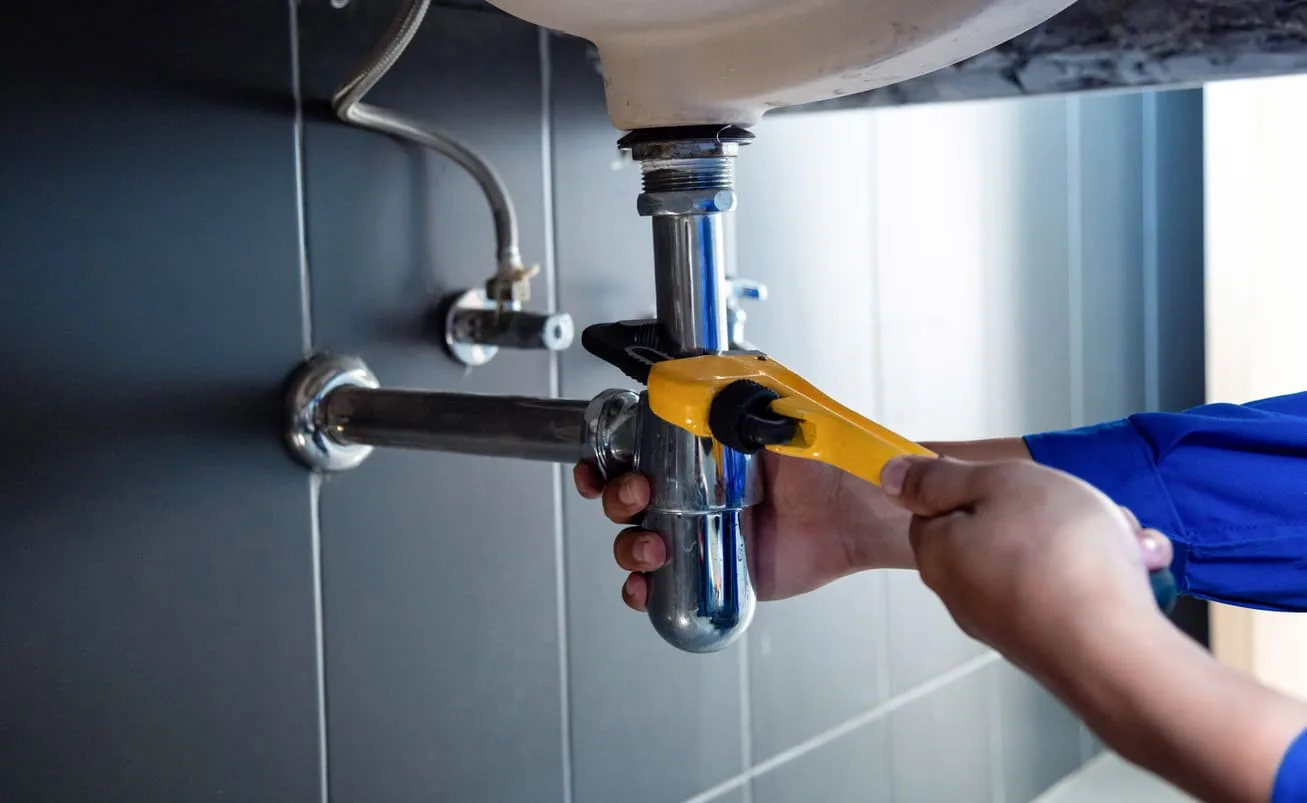Understanding how plumbing works in a new house is crucial for both homeowners and real estate developers, ensuring that the system operates efficiently and meets all necessary standards. The plumbing system is a complex network that requires careful planning and execution.
In a new house, the plumbing system is designed to provide clean water for drinking, washing, and cooking, while also safely removing waste. This process involves several components, including pipes, fittings, and appliances. Homeowners can benefit from understanding the basics of plumbing to ensure their new home’s system functions correctly.

The Importance of a Well-Designed Plumbing System
A well-designed plumbing system is essential for the functionality and safety of a new house. Properly installed plumbing ensures that water flows efficiently, minimizing the risk of leaks and other issues. Real estate developers must prioritize quality plumbing to maintain property value and prevent future problems.
For more insights on maintaining your plumbing system, check out these plumbing maintenance tips.
Key Components of a New House Plumbing System
Water Supply System
The water supply system is responsible for delivering clean water to the house. This system includes a connection to the municipal water line, a water meter, and a series of pipes and valves. Ensuring the water supply system is correctly installed is crucial for safe and reliable water access.
Drain-Waste-Vent (DWV) System
The DWV system is designed to remove waste and wastewater from the house. This system includes drainpipes, traps, and vent pipes that allow air to enter the system and prevent sewer gases from entering the home. Proper installation of the DWV system is essential for sanitary living conditions.
Plumbing Fixtures and Appliances
Plumbing fixtures and appliances include sinks, toilets, and dishwashers that use water and require connections to the plumbing system. These components must be installed correctly to function properly and avoid leaks or water damage.
Steps to Install Plumbing in a New House
Planning the Plumbing Layout
Before installation, it’s important to plan the plumbing layout, considering the location of fixtures and appliances, as well as the position of pipes and vents. Proper planning helps ensure that the system is efficient and meets building codes.
Installing the Water Supply System
The installation begins with connecting the house to the municipal water line. Plumbers then install pipes and valves to distribute water throughout the house. It’s essential to use quality materials to prevent leaks and ensure longevity.
Setting Up the DWV System
The DWV system installation involves setting up drainpipes, traps, and vents. This system requires careful planning to ensure waste is removed efficiently and gases are vented safely.
Installing Fixtures and Appliances
Once the piping systems are in place, plumbers install the fixtures and appliances. This step involves connecting fixtures to the water supply and DWV systems, ensuring they are secure and leak-free.
Challenges in New House Plumbing
Plumbing in a new house can present several challenges, including ensuring compliance with building codes, avoiding leaks, and selecting the right materials. Developers and homeowners must work with experienced plumbers to navigate these challenges effectively.
For tips on handling long-term plumbing maintenance, explore this guide.
Ensuring Quality and Compliance
Ensuring that the plumbing system meets quality standards and complies with local building codes is vital. Regular inspections and using certified materials can help maintain quality and compliance, preventing costly repairs in the future.
Environmental Considerations in Plumbing
Modern plumbing systems focus on sustainability, using water-efficient fixtures and appliances to conserve resources. Homeowners can adopt eco-friendly practices to reduce water usage and promote environmental health.
Cost Considerations for New House Plumbing
The cost of plumbing in a new house can vary based on the size of the house, the materials used, and the complexity of the system. It’s important to budget for quality materials and experienced plumbers to ensure a durable system.
Budgeting for Plumbing
When budgeting for plumbing, consider the cost of materials, labor, and permits. It’s advisable to get estimates from multiple plumbers to ensure competitive pricing and quality service.
Maintaining a New House Plumbing System
Regular maintenance is key to keeping a plumbing system functioning well. Homeowners should regularly check for leaks, clean drains, and have their system inspected by professionals to prevent major issues.
Preventive Maintenance Tips
Preventive maintenance includes checking for leaks, clearing clogs, and inspecting fixtures for wear and tear. Regular maintenance helps extend the life of the plumbing system and avoid costly repairs.
For more DIY tips on plumbing maintenance, visit this resource.
Future Trends in Plumbing for New Houses
As technology advances, new trends in plumbing are emerging, such as smart fixtures and systems that enhance efficiency. Staying informed about these trends can help homeowners make informed decisions when building or renovating their homes.
Smart Plumbing Systems
Smart plumbing systems offer features like leak detection, remote monitoring, and water usage tracking. These systems can help homeowners save water and reduce utility bills.
Conclusion
Understanding how plumbing works in a new house is essential for ensuring a safe and efficient system. By planning carefully, using quality materials, and maintaining the system regularly, homeowners and developers can ensure a reliable and long-lasting plumbing system.

FAQs
What are the main components of a new house plumbing system?
The main components include the water supply system, drain-waste-vent (DWV) system, and plumbing fixtures and appliances.
How can I ensure my plumbing system is efficient?
Ensuring efficiency involves proper planning, using quality materials, and regular maintenance to prevent leaks and other issues.
What should I consider when budgeting for new house plumbing?
Consider the cost of materials, labor, permits, and choose experienced plumbers to ensure quality installation.
This article contains affiliate links. We may earn a commission at no extra cost to you.



